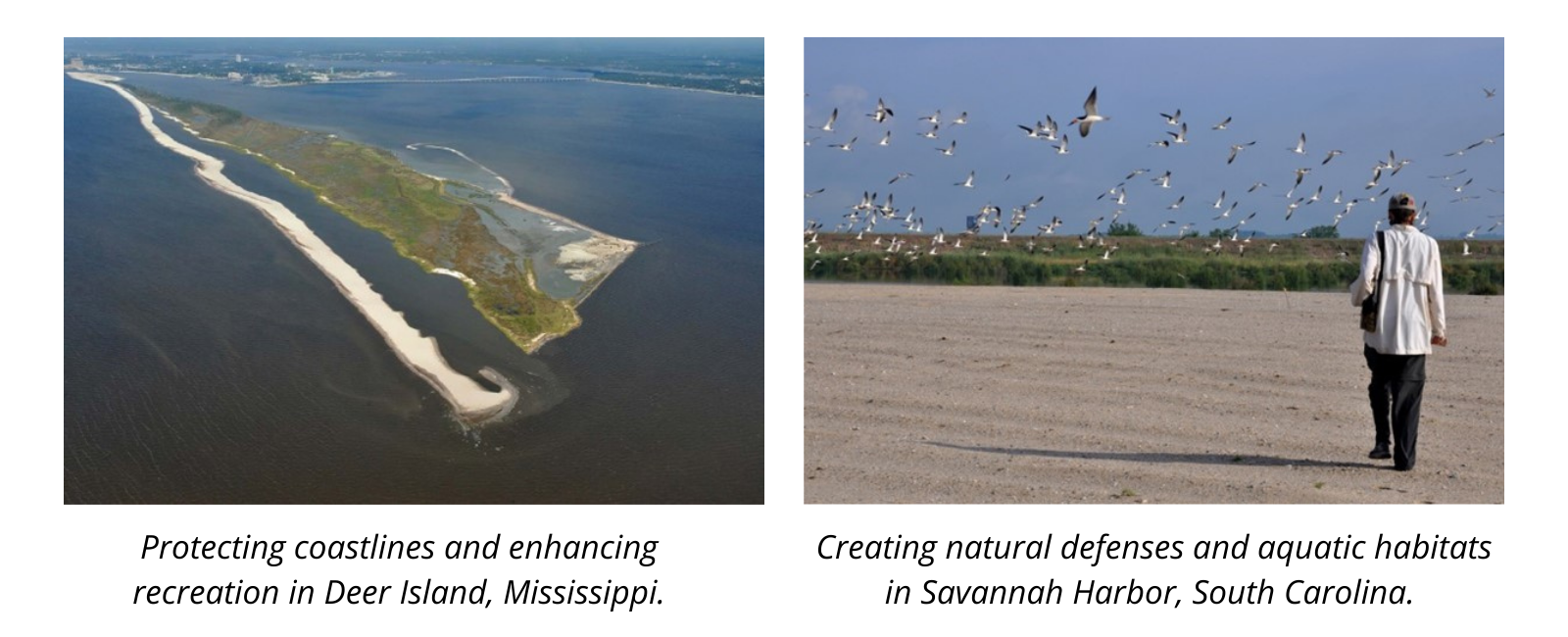The U.S. Army Corps of Engineers has carried out Congressionally-authorized water resources related projects since the mid-1800s. However, the world has changed a lot since the Corps constructed its first lighthouses and harbors almost 200 years ago.
WRDA has changed with it.
Recent WRDA bills recognize the importance of being environmentally responsible. They take those values and puts them to action by helping restore our ecosystems and emphasizing investment in nature-based projects. Many of these projects have the dual benefit of restoring the natural functions of ecosystems while addressing problems such as flooding. Recent bills have also moved away from outdated and antiquated infrastructure that has been shown to not meet modern standards for environmental responsibility.

.png)
WRDA also helps America prepare for the impacts of severe weather by building with resiliency in mind. This allows communities to build infrastructure in anticipation of future needs—especially as climate change worsens—which saves resources for everyone and helps keep us all safe. For example, the Corps is initiating a pilot program to seek opportunities for flood, hurricane, and storm damage reduction for economically-disadvantaged and rural communities. And, through WRDA, Congress works with the Corps to review opportunities for augmenting the water supplies of arid regions through water conservation measures, aquifer recharge, and using science to better predict opportunities to capture rain and snowmelt for drinking water.
